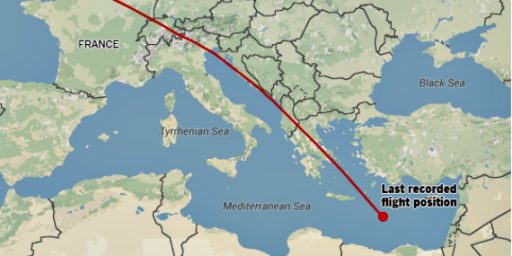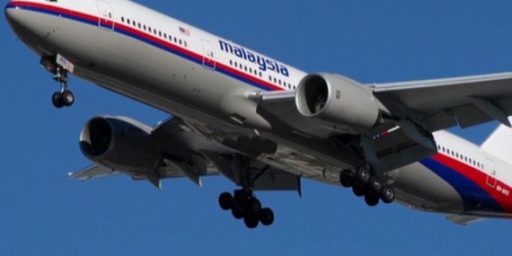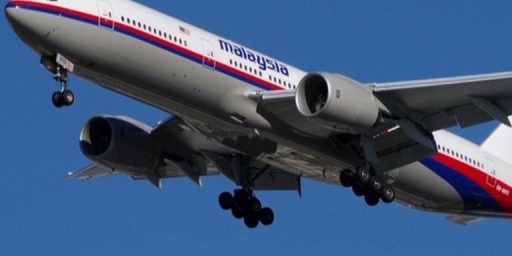Pseduo Security
Via InstaPundit, I came across this week-old Phil Libin post apropos of the discussion with Spoons on anti-hijacking security measures. Phil’s analysis is much broader and more thorough:
Only two changes were necessary to virtually guarantee that a hijacking intended to crash a passenger plane into a building could never happen again. One of them – unbreachable cockpit doors — was relatively cheap and implemented within months of the attacks. The other one was excruciatingly expensive, but the price was paid in full before the day ended and implementation was immediate and ubiquitous: everyone became painfully aware of the possible cost of losing control of an airplane.
Someone attempting an exact replay of the 9/11 attacks today would likely be beaten to within an inch of death – and I wouldn’t take that inch for granted – by passengers with nothing to lose. Even if the terrorists managed get to the cockpit, physical locks and airline policy would make it impossible to take control of the plane. They could kill everyone on board and blow up the airplane, but that makes this kind of attack identical in effect to the “bombing†type. The “hijacking†category, at least for commercial passenger flights, has been largely negated. “Never again†is not just a solemn vow here. It is a statement of fact.
Why, then, do I still have to surrender my nail clippers, take off my belt and wait three quarters of an hour to go through a metal detector honed to such a level of sensitivity that the steak taco I had for lunch sets it wailing? What harm could I inflict with a one inch piece of flimsy metal on a hundred instant air marshals, a bank-vault quality door and pilots specifically trained to never give up control of the airplane? Why is our still-recovering economy being subjected to this level of delay and inefficiency? More importantly, why are our dramatically finite security dollars being spent here as opposed to on other, largely unsolved, problems – like the other three types of threats outlined above? Are these measures effective security, or are they primarily meant to comfort us?
Good questions all.
Some interesting discussion in his comments section as well, including some rather technical exchanges on the issue of shoulder fired rockets against passenger jets. The short version: Not nearly as scary as you’d think.






My question is whether the two measure cancel each other out. The hard part of any hijacking now would be gain access to the cockpit. That is why last winter they were worried about terrorists inflitrating air crews. Once they get access wouldn’t the doors keep the passengers from stopping them?
—